What Is HEUR:Trojan.WinLNK.Agent.gen?
HEUR:Trojan.WinLNK.Agent.gen is a heuristic detection name assigned by Kaspersky Lab to identify a variant of the Trojan.WinLNK.Agent family. The Trojan.WinLNK.Agent family is designed to exploit LNK (shortcut) files on Windows systems.
This trojan horse typically disguises itself as legitimate links or files, aiming to execute malicious code when the user interacts with the infected shortcut. It is often distributed via email attachments, removable drives, or compromised websites, making it a versatile vector for cybercriminals.
Once activated, HEUR:Trojan.WinLNK.Agent.gen can obtain unauthorized access to the compromised system, download additional malware, or steal sensitive information. To remove HEUR:Trojan.WinLNK.Agent.gen safely and thoroughly, running an anti-malware program is recommended.
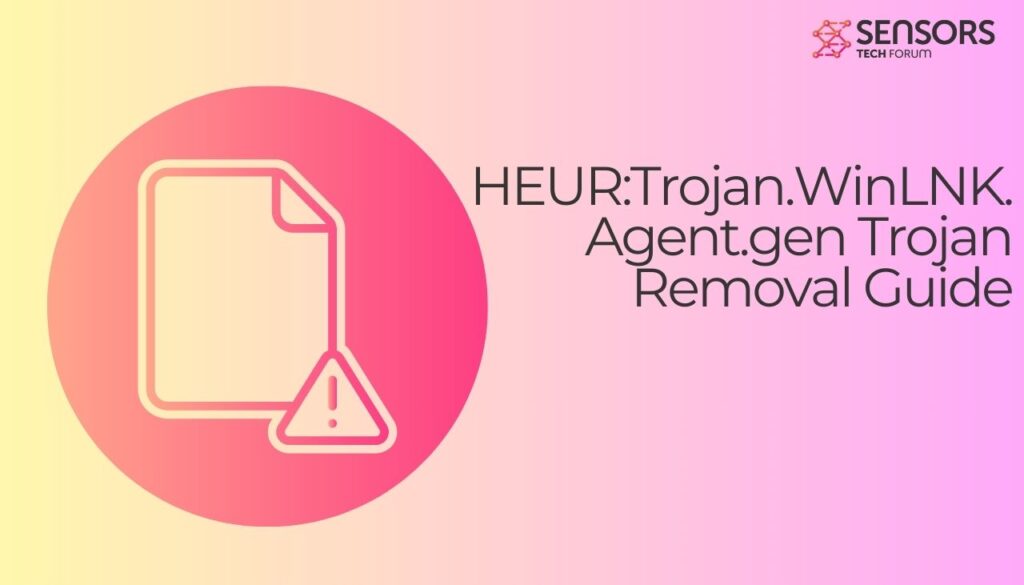
HEUR:Trojan.WinLNK.Agent.gen Threat Summary
| Name | HEUR:Trojan.WinLNK.Agent.gen from Trojan.WinLNK.Agent malware family |
| Type | Trojan Horse / Malware / Backdoor |
| Brief Description | Helps other malware enter an infected system. |
| Symptoms | Your computer could become very slow and even freeze from time to time. |
| Distribution Technique | Bundled downloads. Web pages which may promote it. |
| Detection Tool |
See if the System is impacted by HEUR:Trojan.WinLNK.Agent.gen
Down Load
Malware Removal Tool
|
HEUR:Trojan.WinLNK.Agent.gen – Distribution Tactics
Malgent invade Windows operating systems in a stealthy manner, via fake applications and infected sites. This type of malware can seriously damage an infected computer, as it abuses system resources and can evade detection for long periods of time.
Other distribution tactics that the malware operators may use include fake software updates, malicious spam emails, and trojanized applications. In a nutshell, these are the most common methods used by cybercriminals to spread trojans such as HEUR:Trojan.WinLNK.Agent.gen:
- Exploit kits;
- Phishing emails;
- Bundled freeware installers;
- Fake updates and infected pages.
What Does HEUR:Trojan.WinLNK.Agent.gen Do?
Shortly said, HEUR:Trojan.WinLNK.Agent.gen’s access to a computer enables it to create several malicious files that may compromise both the system and the network. Since such malware usually wants to remain undetected, you may spot it after it has successfully corrupted your operating system. One way to catch this threat is to notice that some of your installed programs do not run correctly.
The trojan may also aid the installation of additional malware on the system as it could open a backdoor. Since the added malware can be of any kind, your device may be hit by ransomware, spyware, another Trojan, adware, etc.
Hackers can steal sensitive login credentials for various accounts, perform fraudulent transactions, get access to your email accounts to send spam, and many more. We recommend using an advanced security tool for its complete removal. Otherwise, some elements installed by the malware may remain on your computer, leaving it vulnerable to future infections.
Due to its malicious nature that endangers your various accounts, we advise you to scan your system and remove any detected threats.
How to Remove HEUR:Trojan.WinLNK.Agent.gen
To remove HEUR:Trojan.WinLNK.Agent.gen from your computer system, we recommend that you follow the removal instructions underneath this article. If the first two manual removal steps do not seem to work, we suggest what most security experts advise – to download and run a scan of your computer with a reputable anti-malware program.
Downloading this software will not only save you some time, but will also remove all of its associated malicious files. It will also protect your computer against malware in the future.
Preparation before removing HEUR:Trojan.WinLNK.Agent.gen.
Before starting the actual removal process, we recommend that you do the following preparation steps.
- Make sure you have these instructions always open and in front of your eyes.
- Do a backup of all of your files, even if they could be damaged. You should back up your data with a cloud backup solution and insure your files against any type of loss, even from the most severe threats.
- Be patient as this could take a while.
- Scan for Malware
- Fix Registries
- Remove Virus Files
Step 1: Scan for HEUR:Trojan.WinLNK.Agent.gen with SpyHunter Anti-Malware Tool
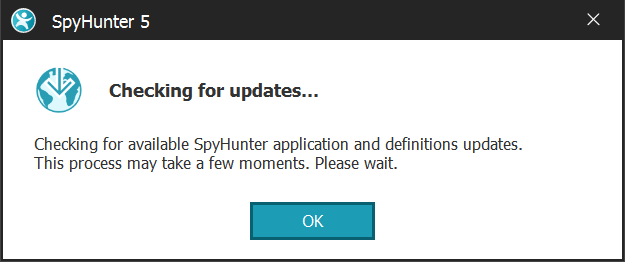
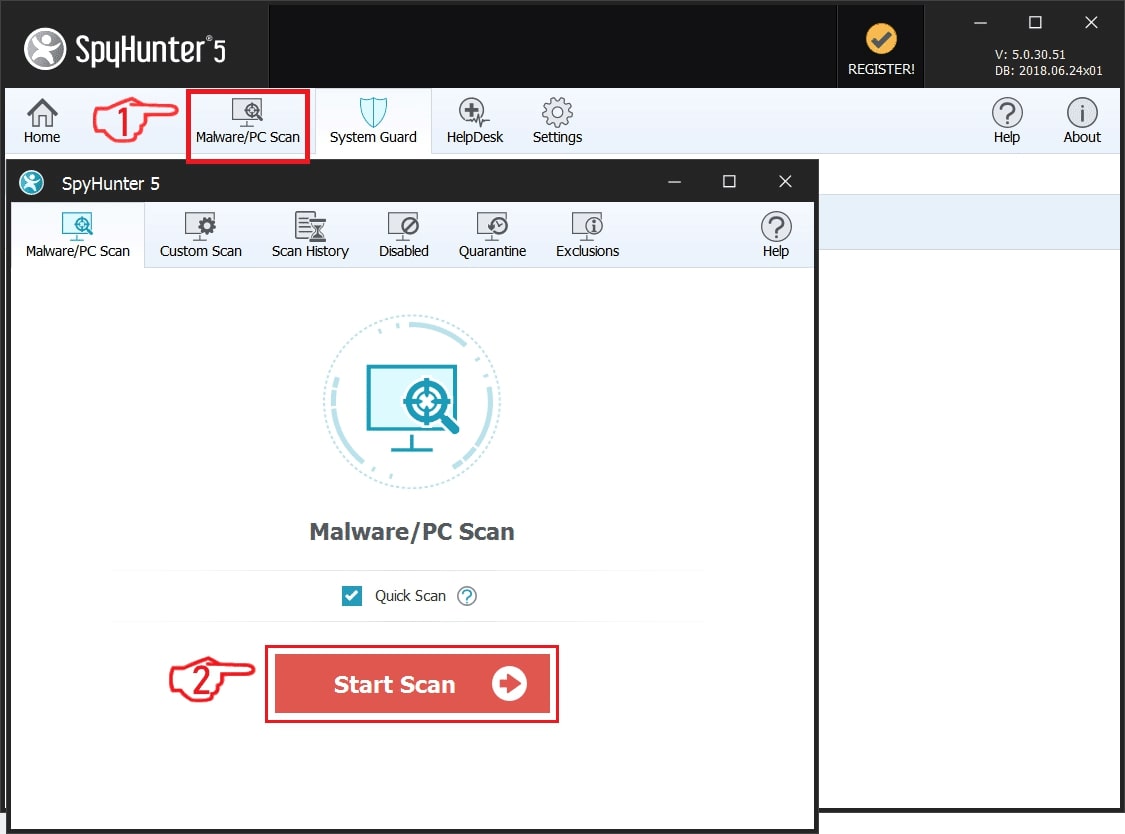
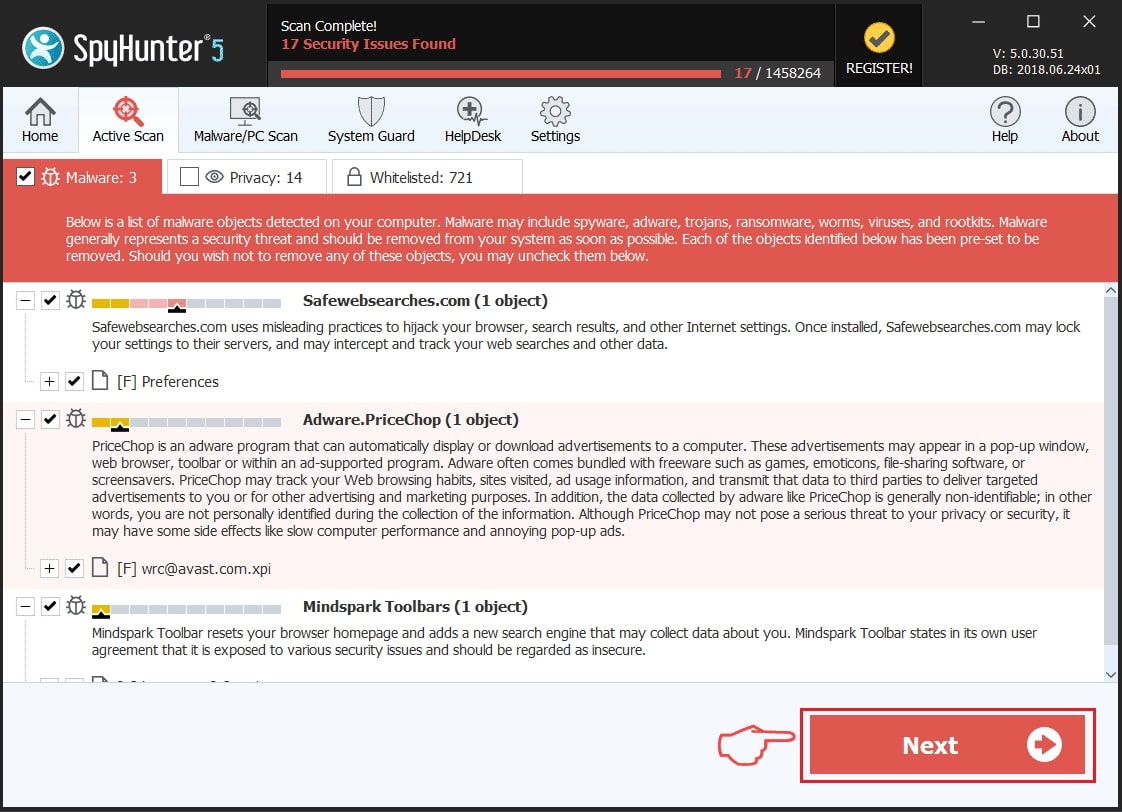
Step 2: Clean any registries, created by HEUR:Trojan.WinLNK.Agent.gen on your computer.
The usually targeted registries of Windows machines are the following:
- HKEY_LOCAL_MACHINE\Software\Microsoft\Windows\CurrentVersion\Run
- HKEY_CURRENT_USER\Software\Microsoft\Windows\CurrentVersion\Run
- HKEY_LOCAL_MACHINE\Software\Microsoft\Windows\CurrentVersion\RunOnce
- HKEY_CURRENT_USER\Software\Microsoft\Windows\CurrentVersion\RunOnce
You can access them by opening the Windows registry editor and deleting any values, created by HEUR:Trojan.WinLNK.Agent.gen there. This can happen by following the steps underneath:
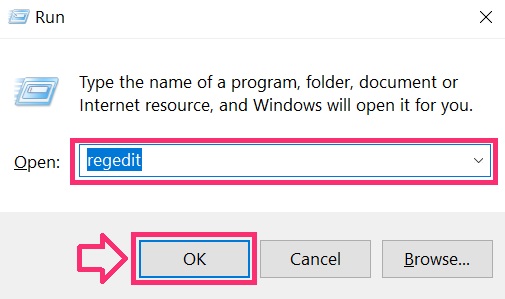

 Tip: To find a virus-created value, you can right-click on it and click "Modify" to see which file it is set to run. If this is the virus file location, remove the value.
Tip: To find a virus-created value, you can right-click on it and click "Modify" to see which file it is set to run. If this is the virus file location, remove the value.Step 3: Find virus files created by HEUR:Trojan.WinLNK.Agent.gen on your PC.
1.For Windows 8, 8.1 and 10.
For Newer Windows Operating Systems
1: On your keyboard press + R and write explorer.exe in the Run text box and then click on the Ok button.
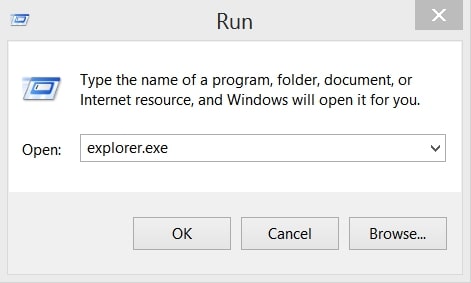
2: Click on your PC from the quick access bar. This is usually an icon with a monitor and its name is either “My Computer”, “My PC” or “This PC” or whatever you have named it.
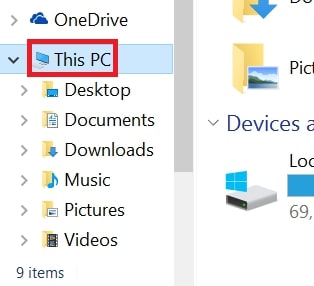
3: Navigate to the search box in the top-right of your PC's screen and type “fileextension:” and after which type the file extension. If you are looking for malicious executables, an example may be "fileextension:exe". After doing that, leave a space and type the file name you believe the malware has created. Here is how it may appear if your file has been found:
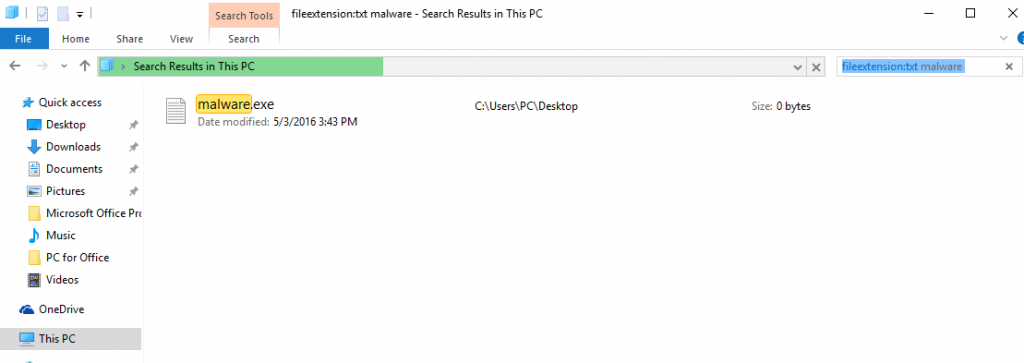
N.B. We recommend to wait for the green loading bar in the navigation box to fill up in case the PC is looking for the file and hasn't found it yet.
2.For Windows XP, Vista, and 7.
For Older Windows Operating Systems
In older Windows OS's the conventional approach should be the effective one:
1: Click on the Start Menu icon (usually on your bottom-left) and then choose the Search preference.
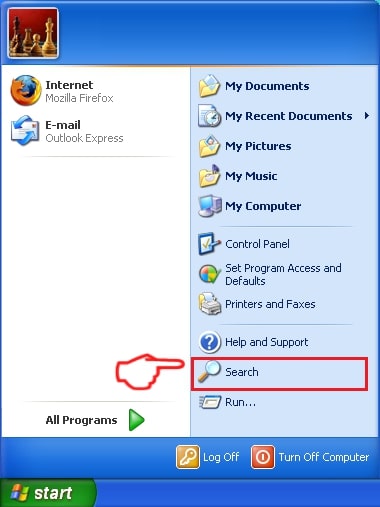
2: After the search window appears, choose More Advanced Options from the search assistant box. Another way is by clicking on All Files and Folders.
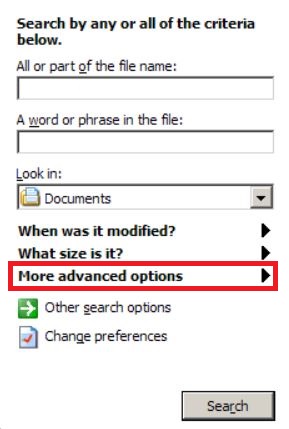
3: After that type the name of the file you are looking for and click on the Search button. This might take some time after which results will appear. If you have found the malicious file, you may copy or open its location by right-clicking on it.
Now you should be able to discover any file on Windows as long as it is on your hard drive and is not concealed via special software.
HEUR:Trojan.WinLNK.Agent.gen FAQ
What Does HEUR:Trojan.WinLNK.Agent.gen Trojan Do?
The HEUR:Trojan.WinLNK.Agent.gen Trojan is a malicious computer program designed to disrupt, damage, or gain unauthorized access to a computer system. It can be used to steal sensitive data, gain control over a system, or launch other malicious activities.
Can Trojans Steal Passwords?
Yes, Trojans, like HEUR:Trojan.WinLNK.Agent.gen, can steal passwords. These malicious programs are designed to gain access to a user's computer, spy on victims and steal sensitive information such as banking details and passwords.
Can HEUR:Trojan.WinLNK.Agent.gen Trojan Hide Itself?
Yes, it can. A Trojan can use various techniques to mask itself, including rootkits, encryption, and obfuscation, to hide from security scanners and evade detection.
Can a Trojan be Removed by Factory Reset?
Yes, a Trojan can be removed by factory resetting your device. This is because it will restore the device to its original state, eliminating any malicious software that may have been installed. Bear in mind that there are more sophisticated Trojans that leave backdoors and reinfect even after a factory reset.
Can HEUR:Trojan.WinLNK.Agent.gen Trojan Infect WiFi?
Yes, it is possible for a Trojan to infect WiFi networks. When a user connects to the infected network, the Trojan can spread to other connected devices and can access sensitive information on the network.
Can Trojans Be Deleted?
Yes, Trojans can be deleted. This is typically done by running a powerful anti-virus or anti-malware program that is designed to detect and remove malicious files. In some cases, manual deletion of the Trojan may also be necessary.
Can Trojans Steal Files?
Yes, Trojans can steal files if they are installed on a computer. This is done by allowing the malware author or user to gain access to the computer and then steal the files stored on it.
Which Anti-Malware Can Remove Trojans?
Anti-malware programs such as SpyHunter are capable of scanning for and removing Trojans from your computer. It is important to keep your anti-malware up to date and regularly scan your system for any malicious software.
Can Trojans Infect USB?
Yes, Trojans can infect USB devices. USB Trojans typically spread through malicious files downloaded from the internet or shared via email, allowing the hacker to gain access to a user's confidential data.
About the HEUR:Trojan.WinLNK.Agent.gen Research
The content we publish on SensorsTechForum.com, this HEUR:Trojan.WinLNK.Agent.gen how-to removal guide included, is the outcome of extensive research, hard work and our team’s devotion to help you remove the specific trojan problem.
How did we conduct the research on HEUR:Trojan.WinLNK.Agent.gen?
Please note that our research is based on an independent investigation. We are in contact with independent security researchers, thanks to which we receive daily updates on the latest malware definitions, including the various types of trojans (backdoor, downloader, infostealer, ransom, etc.)
Furthermore, the research behind the HEUR:Trojan.WinLNK.Agent.gen threat is backed with VirusTotal.
To better understand the threat posed by trojans, please refer to the following articles which provide knowledgeable details.


